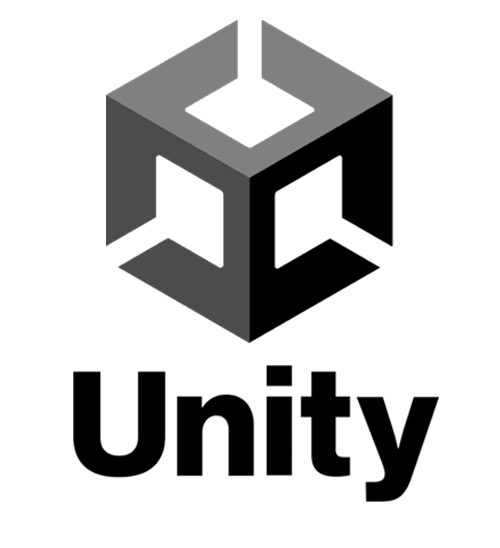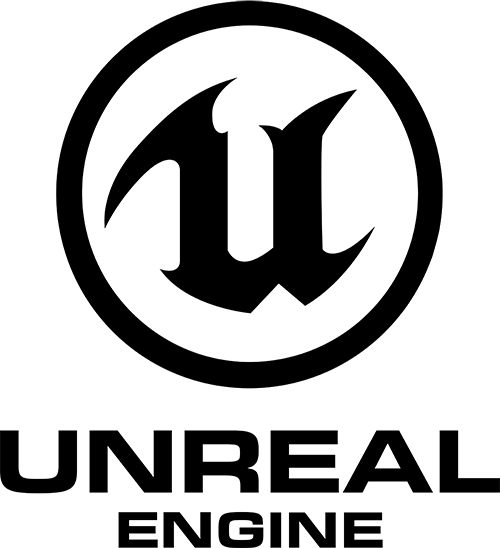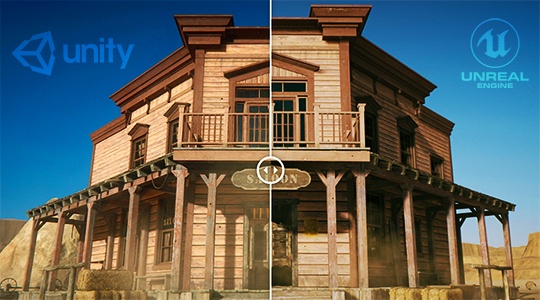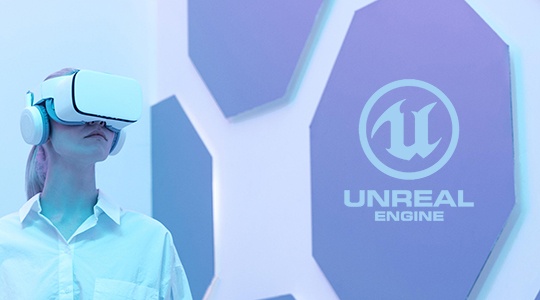The metaverse is the next big thing, right? If so, there must be a technical solution to accelerate its development. Fortunately, there is. Although metaverses aren’t always oriented toward gaming, companies use game engines to power their virtual worlds and not spend time coding all the back end from scratch. Here’s when Unity and Unreal come into play.
Nowadays, internet users witness an ongoing battle every time they type “Unity vs. Unreal metaverse” in the Google search bar. Communities debate over the functionality of these two platforms, trying to identify which is better and for what purposes. However, despite the hype, each modern metaverse development company already knows the truth.
If you’d like to get to the point concerning what engine to prefer for metaverse development, this article is for you. Here we lay out all the answers to the most frequent questions and provide insights for business owners. Get ready for the inflow of new information!
The State of Affairs Regarding Unity and Unreal in 2024

According to Statista, the revenue of Unity Software Inc. rose from $181m in 2018 to $709m in 2021, driven by operating solutions. In turn, Epic Games, a company owning Unreal Engine, generated $5.6bn of gross revenue in 2018, with this number forecast to grow to $7.6bn by 2025. However, are these statistics representative of the actual state of affairs when it comes to a side-by-side comparison of Unity vs. Unreal for metaverse development?
Before analyzing each engine’s functionality as well as the pros and cons, it’s essential to provide more context. Why has the industry stopped its gaze on these two? Aren’t there any other engines to power your future metaverse? Well, the truth is that both Unity and Unreal feature everything you may ever expect from a platform where developers will be constructing your virtual world, integrating blockchain, and including microservices.

Notably, Epic Games has recently announced that it partners with the LEGO Group to build a metaverse to ensure an immersive experience for children in a safe and playful environment. Therefore, the owner of Unreal is building its own metaverse, so isn’t it a persuasive argument to use the same technology for your business purpose? Not yet, hold your horses.
What about the rival? Is it building its own Unity metaverse? The short answer is no. Still, its engine is already used in the development process of other enterprise metaverses, so no worries. In one of the sections below, we’ll shed light on the advantages and disadvantages of each engine so that you can decide what solution fits your future metaverse best.
Is Unreal More Complex Than Unity for Metaverse Development?
Without a doubt, Unreal Engine is more complicated and has a higher entry threshold compared to Unity. In return, it provides far more functionality, premium-looking graphics, and options to tweak when you decide to develop your metaverse inside Unreal. However, since the global dev audience has divided its opinion regarding what engine to choose for what purposes, the difficulty issue is a matter of expertise and time spent mastering the platform.
So, what programming languages stand behind Unity and Unreal? Well, Unity is powered by C#, an object-oriented coding language, which has inherited a broad spectrum of aspects from C++, somewhat simplifying them. In turn, the functionality of Unreal Engine is written in C++, a more powerful yet complex programming language.
The development of the metaverse in Unity vs. Unreal undoubtedly differs, but if you hire specialists proficient at working in either of the game engines, they will be able to create any software solution you require. Furthermore, metaverse development isn’t only about the technical aspect — the business logic and strategy play a crucial role here, inasmuch as you’ll need to elaborate on a coherent campaign promoting your virtual world as unique.
Therefore, it doesn’t really matter if you opt for the Unreal Engine metaverse or choose Unity as your platform because your business plan and value proposition are to be prioritized more than the initial tech stack. That’s why it’s often more beneficial to outsource the development of your metaverse to experts who already know the score and have all the tools at hand.

Unity vs. Unreal for Metaverse Development: Pros and Cons
As mentioned above, both Unity and Unreal have their downsides and benefits. In the table below, you can get familiar with a quick side-by-side comparison that will answer the most frequently asked questions regarding which engine to choose for metaverse development.
Advantages of Unity
Sufficiently lower entry threshold. With a more user-friendly UI onboard and a relatively simpler programming language, Unity can be perceived as a more straightforward platform to build your metaverse. By the way, every 5th recruiter is seeking a C# developer.
Visual scripting support. The Bolt visual scripting system allows Unity users to program the system of their application without any coding experience (Unreal also has a similar solution).
The decent computer-generated imagery (CGI) potential. Although Unity may be considered an engine for small- or medium-sized software solutions, the technology under its hood enables developers to create products with appealing graphics in any resolution.
C# is easier to master. As a programming language powering Unity, C# is more beginner-friendly and straightforward for developers to build small- to medium-size metaverse projects.
Supportive community and clear documentation. Unity is incredibly popular among indie developers, implying it has a helpful community of enthusiasts writing plugins to expand its functionality and effectively responding to issues discussed on forums.
Technological flexibility and diversity. Since Unity is loved by enthusiasts and indie devs, this platform provides your creators with a bunch of incredibly helpful plugins, tools, and even an Asset Store.
Almost free for commercial use. Why almost? Since you won’t have to pay a penny until your metaverse earns more than $100k. Simple as that.
Benefits of Unreal Engine
Higher entry threshold yet more tweaking options for senior developers. Although you may find it challenging to find experienced senior Unreal devs, when they commence work, you can be confident that your game is in good hands.
The Blueprint system. This technology is a pioneer in visual scripting, so some developers who lack some knowledge of C++ programming can master it to work with gameplay elements.
High-end graphics. Unlike Unity, which offers decent yet not top-notch visuals, Unreal is the very best engine when it comes to the appearance of your metaverse.
C++ as a primary programming language. C++ is unquestionably regarded as one of the most powerful programming languages ever created because it gives developers much control over all the computer resources due to its proximity to the CPU.
Coherent development documentation. It’s no secret that Unreal provides plenty of crystal-clear documentation on pretty much every issue and topic your developers may ever encounter while building your metaverse.
Advanced technological functionality. There’s no denying that, with the advent of its 5th generation, Unreal has introduced a lot of additional technologies like Nanite (super-fast 3D scenes rendering), Pixel Streaming (the ability to create web apps using UE5, with a visual part being rendered on a cloud graphical instance) or MetaHuman (realistic human creator) to tweak your app’s features.
It’s almost free. As long as your product doesn’t earn more than $1m, you don’t have to pay anything to Epic Games.
What about the downsides of both engines? Well, metaverse development companies prefer this or that platform for a number of reasons known only to them. In general, the most evident reasons you may not want to choose Unreal include a high entry threshold, complex programming language, and a variety of excessive functionality you may never need, not to mention the difficulty finding UE developers with sufficient expertise. Regarding Unity, these are slightly less powerful coding systems and not premium graphics.
Expectations from Unity and Unreal Engines for Metaverse Development
What are game engines, after all? Are these the same as website builders, so you shouldn’t have any coding experience to build immense virtual worlds? Actually, not at all. Unity or Unreal are only platforms with certain built-in functionality that allows your developers not to code every single aspect from scratch. Nonetheless, depending on your choice, you’ll need to know either C# or C++ to create software featuring advanced functionality for your users.
Irrespective of the global audience’s expectations from both Unreal and Unity, these don’t have the potential to solve any business issues without the hard work of an entire development team. You’ll require smooth coordination of 3D technical artists, business analysts, programmers, animators, project managers, marketing experts, and others to build a multidimensional metaverse that will capture global attention, bringing you more users.
Metaverse development is unquestionably one of the most challenging missions you can set before an outsourcing agency. However, given enough expertise and a team of professionals, they can craft a virtual world of almost any scale based on your ideas. Of course, every step must be coordinated with you in order to avoid miscommunication and ensure that every single detail of the project is as per expectations.

Extract More Value from the Metaverse with Program-Ace
The present-day industry is replete with outsourcing studios that can get the work done for business owners who don’t have time to spend figuring out how to build their own metaverse and thus respond to corporate needs. Every respected software development service provider keeping their fingers on the pulse of the trends can quickly mobilize all the resources, build a reliable team, and create a quality metaverse for their client.
Considering the argument claimed above, you might need a reliable and experienced partner to start developing the metaverse you’ve pictured in your mind. Program-Ace may prove the best choice in this regard because our specialists have already finalized multiple XR and some metaverse projects, continually expanding our expertise in the field. Given our knowledge and your ambitions, we can build a metaverse that will boost your business.
Just contact us and hesitate no more because the industry is uninterruptedly moving forward, so it’s essential to jump on the train.























